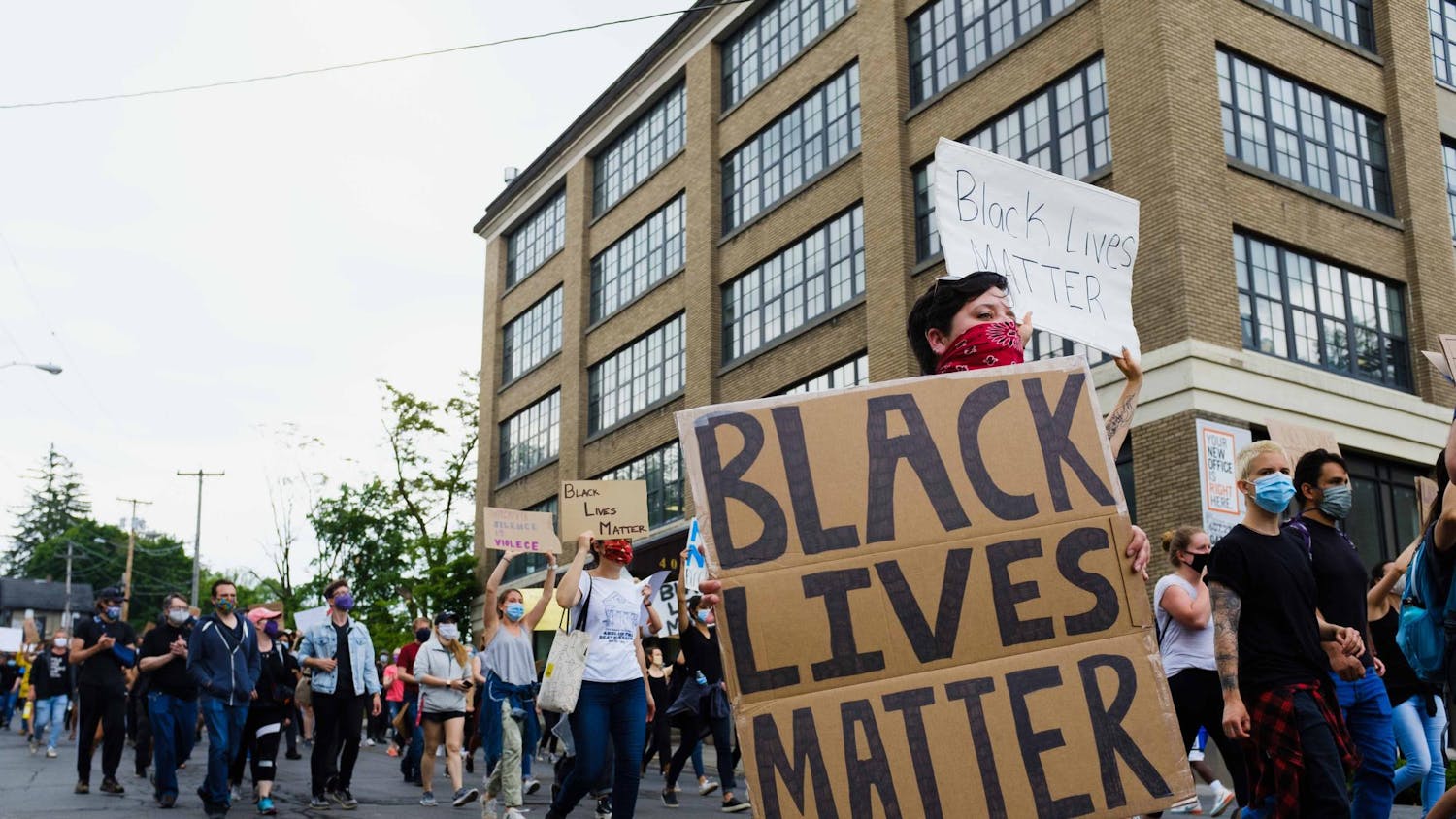Black, Native American and Hispanic student enrollment dropped markedly between the classes of 2027 and 2028, while the proportion of Asian first-years rose slightly, according to data released by the University on Wednesday. This year’s class of first-years is the first to be admitted after the Supreme Court banned race-conscious affirmative action in higher education last year.
Black first-year undergraduate student enrollment saw a decrease from 11.7 percent last year to 7.7 percent. The share of first-years who identify as Hispanic dipped from 16.7 percent to 10.5 percent. Native American and Native Hawaiian/Pacific Islander first-year student enrollment both saw sharp declines. White enrollment decreased less than a percentage point, from 48.5 percent to 47.7 percent.
The only racial group in the data to see an increase from last year’s figures were Asian students, with first-year enrollment rising only marginally, from 36.3 percent last year to 36.5 percent.
The racial data is based on self-identification. Because students can select multiple categories, the sum of the demographic percentages is above 100 percent.
The Class of 2028 saw the lowest summed percentage of reported races. The percentage sum was just 103.5 percent this year, a stark 12.4 percent drop from last year’s value of 115.9 percent. Over the past four years, this figure had not dipped below 113 percent.
The number of students whose self-reported race/ethnicity was classified as unknown grew from 183 last year to 314 this year.
The released data did not give a specific breakdown of the student enrollment in specific colleges.
In an interview with The Sun, Interim President Michael Kotlikoff said that this year’s process of releasing demographic data for Cornell’s first-year students was expedited, as the final figures are typically announced in October.
In a University press release, Lisa Nishii, vice provost for undergraduate education and vice provost for enrollment, said that the Supreme Court’s decision to overturn race-conscious affirmative action does not undermine Cornell’s founding commitment to diversity.
“Since Cornell’s founding, at a time when our peer institutions were closed to women and people of color and out of reach for all but the elite, we have been proudly committed to educating students from every background,” Nishii said. “The Supreme Court’s decision in no way undermines that fundamental commitment.”
Nishii explained that the shifts in the racial and ethnic composition of the Fall 2024 class were “not unexpected,” as many peer institutions have seen similar trends.
Cornell, which was the last Ivy League school to release its data, saw comparable decreases in the admissions of certain demographic groups as peer institutions.
Massachusetts Institute of Technology saw a dramatic decrease in the enrollment of Black and Hispanic students, with Black enrollment dropping from 15 percent to 5 percent and Hispanic enrollment dropping from 16 percent to 11 percent. Harvard also saw a decrease in Black student enrollment, with a drop from 18 percent to 14 percent.
However, Yale saw its first-year enrollment for Black students unchanged at 14 percent and its Latino enrollment increased by one percent.
After the Supreme Court decision, Cornell added a new identity-focused essay that asked students to “define community the way that is most meaningful to you” in addition to college-specific responses.
Nishii went on to describe broadly the University’s approach to the review cycle.
“In selecting each entering class, we look holistically at each applicant’s academic performance and interests, talents and accomplishments, lived experience and alignment with our public impact mission,” Nishii said. “We actively seek students who demonstrate the qualities of open-mindedness, curiosity and a willingness to engage across differences.”
Nishii explained that, in hopes to enhance diversity in Cornell’s admitted class, the University will reach out to more high schoolers, counselors and community organizations to ensure they can be competitive for admission to Cornell. Nishii announced a new partnership with QuestBridge’s College National Match Program, which “helps high-achieving students from low-income and underserved households prepare for admission to top colleges and universities.”
Cornell Media Relations did not provide an immediate comment about demographic distribution in different Cornell colleges.

Matthew Kiviat is a member of the Class of 2027 in the College of Arts and Sciences. He is the assistant managing editor for the 143rd Editorial Board and was a news editor for the 142nd Editorial Board. He can be reached at mkiviat@cornellsun.com.











